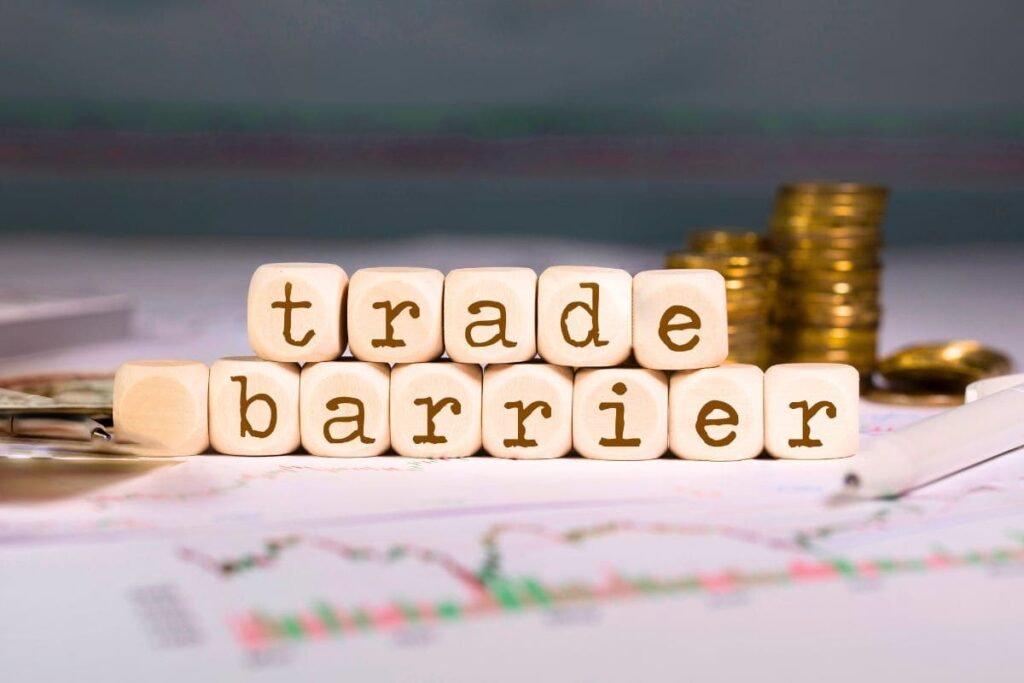Breaking trade barriers: How policy harmonization can boost Intra-African business

Africa is home to some of the fastest-growing economies in the world, boasting a young population, rich natural resources and a rapidly expanding middle class. Yet, despite this potential, intra-African trade remains surprisingly low , accounting for just about 17% of total trade on the continent. A major reason for this underperformance is the persistence of non-tariff barriers (NTBs) and the lack of harmonized policies across African markets.
For African business communities, understanding and addressing these challenges is key to unlocking growth. As the African Continental Free Trade Area (AfCFTA) continues to take shape, conversations about reducing NTBs and aligning regulations have taken center stage.
Non-tariff barriers are restrictions that make trade between countries difficult, expensive or time-consuming without necessarily involving import duties or tariffs. They include rules, procedures and practices that either delay goods at the border or make it harder for businesses to comply with requirements. Examples include complicated customs procedures, inconsistent product standards, import quotas, cumbersome licensing requirements and even bureaucratic corruption. For small and medium-sized enterprises (SMEs), which make up over 80% of Africa’s businesses, these barriers can be crippling.
When a Kenyan farmer wants to export avocados to Uganda but faces delays at the border due to differing phytosanitary standards, that is a non-tariff barrier. When a South African manufacturer has to spend weeks securing special permits to sell in Tanzania, that slows down trade. These obstacles increase the cost of doing business, reduce competitiveness and ultimately discourage cross-border commerce.
The economic impact of NTBs is significant. According to the World Bank, reducing NTBs could increase intra-African trade by over 50%. Currently, businesses spend billions annually on compliance costs and border delays, money that could have been reinvested in production, job creation and innovation.
Non-tariff barriers also hurt consumers by driving up the price of goods and limiting product variety. For example, delays in clearing perishable goods like fresh produce lead to waste, meaning fewer goods reach the market, pushing prices higher. In a continent where food security remains a pressing issue, this is a critical problem. Additionally, NTBs reduce Africa’s ability to compete globally. When African businesses struggle to trade within the continent, it becomes harder for them to scale and build competitive value chains that can take on international markets.
Policy harmonization refers to the process of aligning regulations, standards and procedures across countries to create a uniform and predictable trading environment.
For African business communities, this is not just a nice-to-have , it is essential for growth. Harmonizing customs procedures, simplifying licensing requirements, and aligning quality standards would make it easier for goods to move across borders. A trader in Nairobi should not have to redo compliance tests when selling to Kigali, and a manufacturer in Accra should not face entirely different labeling requirements when entering the Nigerian market.
The AfCFTA, which is now the largest free trade area in the world by membership, provides a framework for achieving this. By committing member states to gradually remove NTBs and standardize policies, AfCFTA aims to transform Africa into a single, integrated market of over 1.3 billion people. Several regional economic communities, including COMESA, EAC, ECOWAS and SADC, have made progress in addressing NTBs through online reporting, monitoring, and elimination mechanisms. Businesses can now log complaints about trade barriers and member states are obligated to resolve them.
However, implementation remains uneven. Some countries are slower to align their policies, while others reintroduce new NTBs when old ones are removed. Political will is critical. Without strong commitment from governments to prioritize trade facilitation, efforts at harmonization can stall. Infrastructure is another challenge. Even with harmonized policies, poor transport networks, inefficient ports and limited digital systems can continue to slow down trade. Investments in infrastructure, such as road corridors, rail systems, and digital customs platforms, must go hand in hand with policy reforms.
African business associations, chambers of commerce and trade councils have an important role to play in advocating for NTB removal and policy harmonization. They can gather evidence on how NTBs affect their members, engage with policymakers and push for reforms that make trade easier. Entrepreneurs themselves can also take advantage of existing regional trade frameworks by familiarizing themselves with NTB reporting systems and participating in dialogues about trade policy. Collaboration between the private sector and governments will be key to making harmonization efforts practical and responsive to real business needs.
Eliminating non-tariff barriers and harmonizing policies will not happen overnight, but the momentum is building. The growing recognition that Africa’s economic future depends on greater integration is encouraging governments and regional blocs to take action. For business communities, this is a moment of opportunity. Reduced NTBs mean lower costs, faster trade, and access to larger markets. Policy harmonization means predictability, which encourages investment and innovation. Together, they have the power to transform Africa’s economic landscape and position the continent as a formidable player in global trade.
Non-tariff barriers remain one of the biggest obstacles to unlocking Africa’s trade potential. They increase costs, slow down business growth and limit the ability of African companies to scale across borders. Policy harmonization, supported by frameworks like AfCFTA, is the most effective solution. If governments, regional bodies and the private sector work together to address NTBs and align trade policies, African business communities will benefit from faster growth, greater competitiveness and new opportunities in domestic and global markets. The time to act is now because the more Africa trades with itself, the stronger its economy will become.










